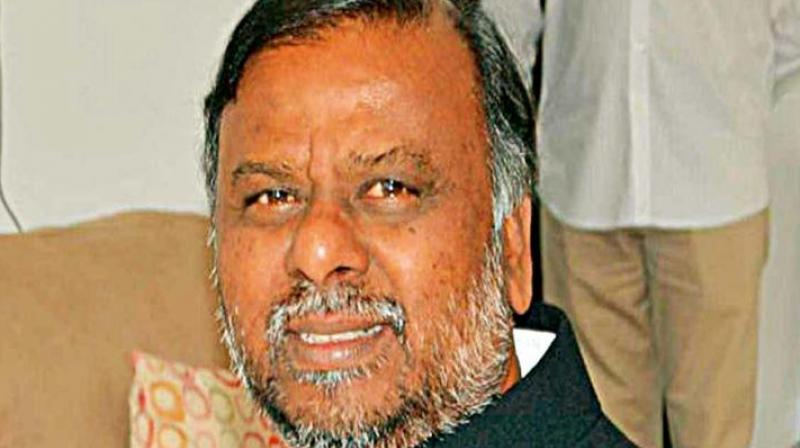We want job opportunities, quota: Devadasis
Social Welfare Minister H. Anjaneya interacted with the community and promised to help them to address issues.

Bengaluru: Demanding proper recognition and reservation, people representing the Devadasis community from across the state got together in the city for a two-day meet. Ostracism, job opportunities and reservation in the education sector for children were raised throughout the sessions, organised by the Marginalised Community Research Association, NLSIU, Bangalore Central University (BCU) and the social welfare department.
Though the practice of dedicating young girls for goddess Yellamma is believed to have ended in 1982, the community is continuing to be a group of sufferers facing neglect from the government with even basic human rights not being achieved, Devadasis said. “Our young ones and next generations should be totally free from the menace of the system which ruined our lives totally. Why are we not considered for reservations enjoyed by others at various levels – education, finding jobs and more,” questioned one of the Devadasis, who came from Koppal.
On various issues faced by the community, B.L. Patil, advocate and chairperson of Vimochana Sangha, said, “The Devadasi cult continues to suffer and generations have been paying the price for what happened three decades ago. Even though SC/ST communities benefit reservation facilities, the Devadasis are not properly recognised at any level.” He said that a tangible intervention to their livelihood is essential to avoid the upcoming generations from being in a total economically backward condition.
Experts said that the Karnataka Devadasi (Prevention of Dedication) Act of 1982 needs to be amended to look into areas of rehabilitation, reservation and total eradication of the practice, which is still prevalent in northern parts of Karnataka and southern regions of Maharashtra. “The lack of an efficient judiciary to look into such issues makes the law resemble a snake without teeth. Reservation right from collegiate level, including technical courses across varsities in the state, should also be considered,” said Mr Patil.
The BCU Vice-Chancellor, Prof S. Japhet, said, “Though BCU represents an urban face at the global level, inclusion of people from across communities, especially those marginalised and oppressed, will be our priority. Also the chief advisor of the Marginalised Community Research Association said that the two-day programme was organised as a starting step for a comprehensive research on the Devadasi community. While most researches on similar lines are conducted with a top-down approach, the real aspirations and struggles at the grassroots are rarely identified. The two-day meet has helped us know more on the community and the findings will be presented to the public and officials concerned to ensure effective policy changes.”
The two-day event held at Central College Senate Hall included representatives of the Devadasi community, NGO officials and bureaucrats from the state government. Social Welfare Minister H. Anjaneya interacted with the community and promised to help them to address issues.

